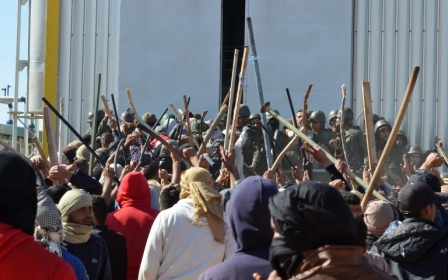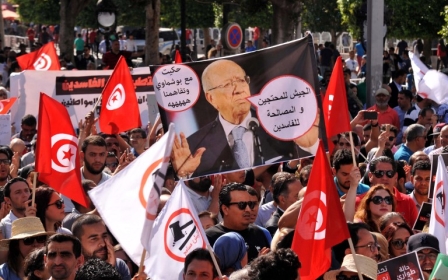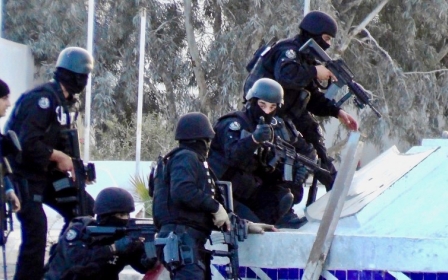'Incitement for a coup': Tunisia fears unrest after protester death
Tunisian officials warned on Tuesday that tensions in the country's south could escalate following a protester's death after clashes with security forces at an oil and gas plant.
The young demonstrator died of wounds suffered on Monday when he was "accidentally" run over by a national guard vehicle outside the El Kamour pumping station, the health and interior ministries said.
Protesters have been camping outside the El Kamour installation for around a month, blocking trucks from entering, to demand a share of resources and jobs in the sector.
National guard spokesman Khalifa Chibani on Tuesday warned of a further escalation.
"There is incitement on social media... calls for civil disobedience... and even a coup d'etat," he told local radio Mosaique FM.
In a special sitting of Tunisia's parliament, assembly president Mohamed Ennaceur said Tunisia was "passing through a delicate phase".
Six years since the 2011 uprising that toppled veteran dictator Zine El Abidine Ben Ali, Tunisia's neglected periphery has been rocked by protests over social and labour issues.
Security forces on Monday fired tear gas at protesters who were trying to storm the El Kamour facility in the desert region of Tataouine, local radio said.
The health ministry said 50 people were treated in hospital after suffering from broken bones or the effects of tear gas during clashes with security forces in both El Kamour and Tataouine.
Authorities said around 20 members of the security forces were wounded.
Two protests were also held in the capital, with demonstrators echoing the rallying cry of Tataouine residents and chanting: "We won't give up!"
Mosaique FM said fighting broke out overnight during a rally in Kebili, 230 kilometres (140 miles) northwest of Tataouine, in support of the El Kamour protesters.
A hundred or so people also demonstrated on Tuesday morning in the central town of Gafsa, an AFP reporter said.
President Beji Caid Essebsi vowed earlier this month that the army would protect key economic installations from disruption by protests.
The latest unrest came as parliament debates a controversial bill that would allow officials facing prosecution for alleged corruption to be amnestied in exchange for reimbursing embezzled funds.
The bill, backed by Essebsi, has prompted a backlash from civil society groups who say it would "whitewash the corrupt".
Government spokesman Iyed Dahmani insisted Tuesday that Tunisia was a "democratic regime".
"In all democracies, there is no other solution: apply the law and dialogue with the protesters," he told Shems FM radio.
But daily newspaper La Presse warned that "the anger of the protesters (could) multiply like a snowball."
It said the government must tackle the issue, which "makes Tunisians feel that nothing has changed since January 14, 2011" - the day Ben Ali fled the country he had dominated for more than two decades.
"Otherwise, the worst is to be feared."
New MEE newsletter: Jerusalem Dispatch
Sign up to get the latest insights and analysis on Israel-Palestine, alongside Turkey Unpacked and other MEE newsletters
Middle East Eye delivers independent and unrivalled coverage and analysis of the Middle East, North Africa and beyond. To learn more about republishing this content and the associated fees, please fill out this form. More about MEE can be found here.




